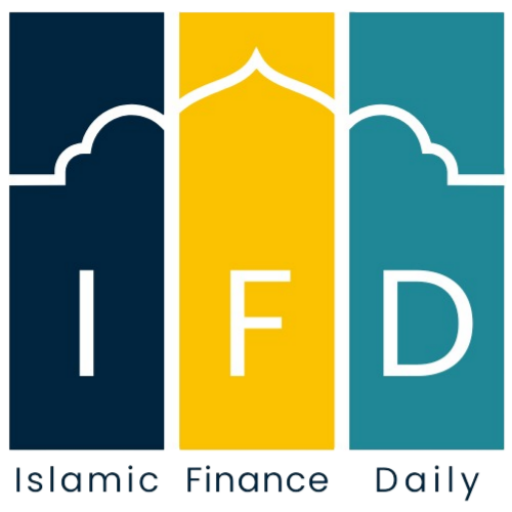Islamic finance has deep historical roots, with classical Islamic scholars playing a vital role in shaping its principles. Their contributions laid the foundation for modern Islamic banking, financial ethics, and economic thought. These scholars combined religious knowledge with economic insights, influencing financial transactions, trade, and wealth distribution.
Table of Contents
ToggleThe Role of Classical Islamic Scholars in Economic Thought
Islamic scholars from the medieval period significantly influenced economic principles by integrating moral values with financial practices. Unlike conventional finance, which prioritizes profit maximization, Islamic finance emphasizes justice, risk-sharing, and ethical investment. Classical scholars developed concepts like fair trade, contract enforcement, and market regulation, ensuring financial transactions aligned with Islamic law (Shari’ah).
Key Scholars and Their Contributions
Abu Yusuf (731–798 CE) – The Pioneer of Public Finance
A disciple of Imam Abu Hanifa, Abu Yusuf played a crucial role in shaping fiscal policies in the Islamic world. His book, Kitab al-Kharaj, provided guidelines on taxation, land policies, and state revenue collection. He advised the Abbasid Caliph Harun al-Rashid on economic policies, advocating for fair tax distribution to prevent economic exploitation. His work emphasized the role of the state in ensuring economic justice.
Al-Mawardi (972–1058 CE) – Governance and Economic Administration
Al-Mawardi wrote extensively on governance and economic policies in his book Al-Ahkam al-Sultaniyyah. He discussed the responsibilities of rulers in managing wealth, ensuring economic stability, and preventing monopolies. His principles remain relevant in modern Islamic public finance.
Ibn Khaldun (1332–1406 CE) – The Father of Economic Cycles
Ibn Khaldun introduced the concept of economic cycles in his book Muqaddimah. He observed how societies move through prosperity and decline based on economic activity. He emphasized labor productivity, trade, and government intervention in stabilizing economies. His theories align with modern economic principles like supply and demand, taxation, and public spending.
Al-Ghazali (1058–1111 CE) – Ethics in Finance
Al-Ghazali linked financial transactions to moral and ethical considerations. In Ihya Ulum al-Din, he discussed the dangers of excessive greed, interest (riba), and unethical business practices. He advocated for fair pricing, ethical labor practices, and social responsibility in wealth distribution.
Ibn Taymiyyah (1263–1328 CE) – Market Regulation and Fair Pricing
Ibn Taymiyyah focused on market ethics, advocating against price manipulation, hoarding, and monopolies. He emphasized that markets should function freely but with oversight to prevent exploitation. His principles on market regulation influence modern Islamic financial policies.
Concepts Introduced by Classical Islamic Scholars
Risk-Sharing and Profit-Loss Sharing
Islamic finance operates on risk-sharing principles, as opposed to conventional finance’s interest-based system. Scholars like Abu Yusuf and Ibn Khaldun emphasized profit-loss sharing (PLS) through contracts like Mudarabah (investment partnerships) and Musharakah (joint ventures). These contracts remain central to modern Islamic banking.
Prohibition of Riba (Interest)
The prohibition of riba is a fundamental principle of Islamic finance. Scholars like Al-Ghazali and Ibn Taymiyyah strongly opposed interest-based transactions, arguing that they exploit borrowers and create economic disparities. Their writings reinforced the Islamic banking system’s preference for equity-based financing over debt-based models.
Zakat and Wealth Redistribution
Islamic scholars emphasized zakat (charitable giving) as an economic tool for wealth redistribution. Abu Yusuf integrated zakat into public finance, ensuring that state resources supported the poor and needy. The principles of zakat are still applied in Islamic finance to promote social equity.
Real-Life Applications of Classical Islamic Financial Principles
Many modern Islamic financial institutions operate based on classical scholars’ principles:
- Islamic Banking: Institutions like Al Rajhi Bank and Dubai Islamic Bank implement risk-sharing models derived from Mudarabah and Musharakah.
- Microfinance Initiatives: Organizations like Akhuwat in Pakistan provide interest-free loans, applying Al-Ghazali’s ethical finance principles.
- Sukuk (Islamic Bonds): Inspired by the prohibition of riba, sukuk structures rely on asset-backed financing rather than interest-bearing debt.
Table: Key Scholars and Their Contributions
| Scholar | Contribution | Key Work |
|---|---|---|
| Abu Yusuf | Public finance, taxation policies | Kitab al-Kharaj |
| Al-Mawardi | Governance, wealth management | Al-Ahkam al-Sultaniyyah |
| Ibn Khaldun | Economic cycles, labor productivity | Muqaddimah |
| Al-Ghazali | Ethics in finance, fair trade | Ihya Ulum al-Din |
| Ibn Taymiyyah | Market regulation, price controls | Various economic writings |
Conclusion
Classical Islamic scholars laid the foundation for ethical finance, emphasizing justice, fairness, and economic stability. Their contributions continue to shape modern Islamic banking, public finance, and ethical investment. By integrating their principles, Islamic finance remains a viable alternative to conventional systems, fostering social and economic justice.



